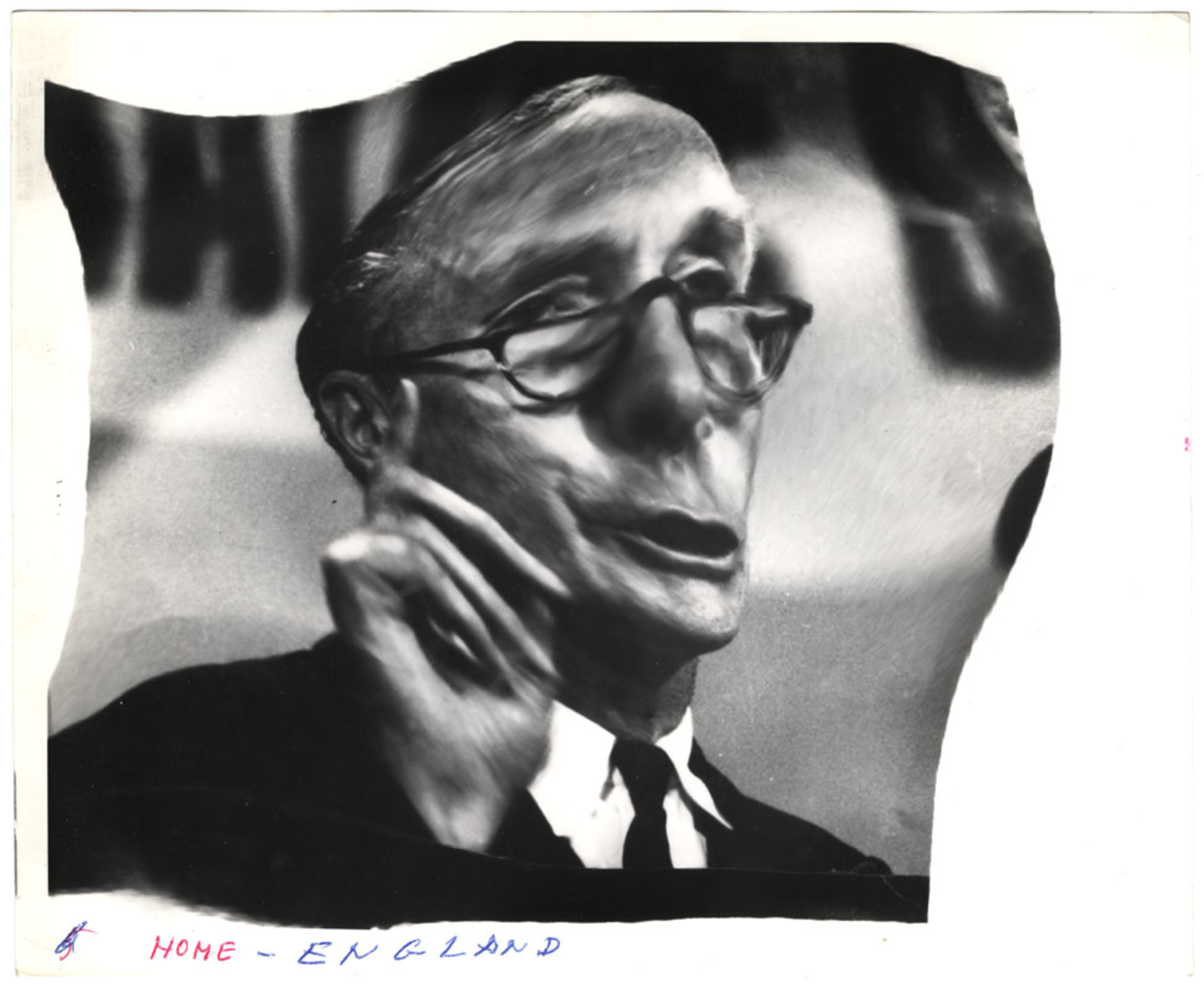Table of Content
As Chamberlain's aide Dunglass witnessed at first-hand the Prime Minister's attempts to prevent a second world war through appeasement of Adolf Hitler's Germany. When Chamberlain had his final meeting with Hitler at Munich in September 1938, Dunglass accompanied him. Having gained a short-lived extension of peace by acceding to Hitler's territorial demands at the expense of Czechoslovakia, Chamberlain was welcomed back to London by cheering crowds. Ignoring Dunglass's urging he made an uncharacteristically grandiloquent speech, claiming to have brought back "Peace with Honour" and promising "peace for our time". These words were to haunt him when Hitler's continued aggression made war unavoidable less than a year later. Chamberlain remained prime minister from the outbreak of war in September 1939 until May 1940, when, in Dunglass's words, "he could no longer command support of a majority in the Conservative party".
He is the last member of the House of Lords to be appointed Prime Minister and the only Prime Minister to renounce his peerage to leave the House of Lords and contest a by-election to enter the House of Commons. He is also the only Prime Minister to have played first class cricket and the first Prime Minister to have been born in the 20th century. He is the last member of the House of Lords to be appointed Prime Minister and to become Prime Minister, he had to disclaim his peerage and contested a by-election to enter the House of Commons. The Resale Prices Bill was introduced to deny manufacturers and suppliers the power to stipulate the prices at which their goods must be sold by the retailer.
Opposition, 1964–70
When the Conservative government fell in 1974, Home returned to the House of Lords. Chamberlain's policy of appeasement had failed and the British people turned against him. Home was a casualty of this failed policy and his career appeared to be over. He later claimed to have learned three important lessons during his tenure with Chamberlain.

First elected to the House of Commons in 1931, served as Parliamentary Private Secretary toNeville Chamberlain ( ). He lost his seat in the Labour Party landslide of 1945 and regained it at the next election. But his father the 13th Earl died in 1951, just a year after Alec regained his seat in the House. As a result, he had to resign and join the House of Lords of the 14th Earl of Home. Created a KT in 1962, the next year saw him chosen Prime Minister after his predecessor,Harold Macmillan, resigned due to ill health. The Peerage Act of 1963 allowed him to give up his title and, after a by-election, return to the House of Commons representing a new constituency.
Foreign and Commonwealth Office, 1970–74
Defeat and opposition Linked as it was to the damaged former government's Profumo Affair of 1963, Douglas-Home's tenure as prime minister lasted only one year. The October 1964 general election was won by the Labour Party under the new leadership of Harold Wilson. However, the margin of victory proved narrow and the election thus provided a much sterner test for Wilson than expected. Wilson kept telling Douglas-Home that he was not a man of the people, as he was the 14th Earl of Home. Douglas-Home responded, "as far as the 14th Earl is concerned I suppose that Mr. Wilson, when you come to think of it, is the 14th Mr. Wilson".
When a coalition "National Government" was formed in 1931 to deal with a financial crisis Dunglass was adopted as the pro-coalition Unionist candidate for Lanark. The electorate of the area was mixed, and the constituency was not seen as a safe seat for any party; at the 1929 election Labour had captured it from the Unionists. With the backing of the pro-coalition Liberal party, which supported him rather than fielding its own candidate, Dunglass easily beat the Labour candidate. Browse 239 sir alec douglas home stock photos and images available, or start a new search to explore more stock photos and images. Delivery time is estimated using our proprietary method which is based on the buyer's proximity to the item location, the shipping service selected, the seller's shipping history, and other factors. Attempted kidnapping A plot to kidnap Home in April 1964 was foiled by the Prime Minister himself.
Douglas-Home's cabinet, October 1963 – October 1964
Two left-wing students from the University of Aberdeen planned to kidnap him. Home met the two students in public and gave them £1 for a charity in return for not kidnapping him, which he took as a joke. The students followed his car, intending to force it to crash or block it, and then kidnap the Prime Minister.

He responded, "I suppose you realise if you do, the Conservatives will win the election by 200 or 300." He gave his intending abductors some beer, and they abandoned their plot. Dunglass had volunteered for active military service shortly after Chamberlain left Downing Street. The consequent medical examination revealed that Dunglass had a hole in his spine surrounded by tuberculosis in the bone. Without surgery he would have been unable to walk within a matter of months.
Early Life and education
Macmillan added Salisbury's responsibilities to Home's existing duties, making him Lord President of the Council and Leader of the House of Lords. The first of these posts was largely honorific, but the leadership of the Lords put Home in charge of getting the government's business through the upper house, and brought him nearer to the centre of power. In Hurd's phrase, "By the imperceptible process characteristic of British politics he found himself month by month, without any particular manoeuvre on his part, becoming an indispensable figure in the government." Home was appointed to the new post of Minister of State at the Scottish Office, a middle-ranking position, senior to Under-secretary but junior to James Stuart, the Secretary of State, who was a member of the cabinet.

His premiership was ended by the general election of 1964, which put in the Labour Party with Harold Wilson as Prime Minister. The safe Conservative seat of Kinross and Western Perthshire was vacant, and Douglas-Home was adopted as his party's candidate. Parliament was due to meet on 24 October after the summer recess, but its return was postponed until 12 November pending the by-election. For twenty days Douglas-Home was Prime Minister while a member of neither house of Parliament, a situation without modern precedent. When he was chosen as Leader of the Conservative Party after Harold Macmillan retired, he knew it would be difficult to lead a government from the House of Lords. Finally, after he lost the election of 1964, he was given a life peerage, titled 'Baron Home of the Hirsel'.
Churchill said in the House of Commons that considering the "greatness and splendour of Scotland", and the contribution of the Scots to British and world history, "they ought to keep their silliest people in order". Home nevertheless arranged that in Scotland new pillar boxes were decorated with the royal crown instead of the full cypher. Unlike one recent incumbent, Home eschewed flash, and yet combined style with substance. His first spell at the Foreign Office was one in which his cool hand was important in what were very dangerous times. How significant a role Macmillan played in steadying Kennedy at the time of the Cuban Missile Crisis is open to argument. Home both recognised the need to work with the Soviets, whilst never forgetting that their ultimate objective was to supplant western democracy.
Within months of his leaving the premiership Chamberlain's health began to fail; he resigned from the cabinet, and died after a short illness in November 1940. In 1944, Home returned to London and to the back benches of Parliament. On September 29, 1944, he delivered one of his most important speeches. Churchill had implied that he was letting Russia have Poland in return for helping to defeat the Germans. Home reminded Churchill that Britain had guaranteed Poland's independence in 1939 and that the treaty was still in effect. Churchill, along with the Americans, gave in to the Russian demands at Yalta.
The opposition retreated, with a statement in the press that "The Labour Party is not interested in the fact that the new Prime Minister inherited a fourteenth Earldom – he cannot help his antecedents any more than the rest of us." Having ruled himself out of the race when the news of Macmillan's illness broke, Home angered at least two of his cabinet colleagues by changing his mind. Macmillan quickly came to the view that Home would be the best choice as his successor, and gave him valuable behind-the-scenes backing. He let it be known that if he recovered he would be willing to serve as a member of a Home cabinet. Butler, by contrast, was seen as on the liberal wing of the Conservatives, and his election as leader might split the party.
Home, in partnership with Edward Heath, the newly appointed ‘Lord Privy Seal’ and the deputy foreign secretary, worked well, despite their different backgrounds. Home served as an official parliamentary private secretary to junior minister Anthony Muirhead from the ‘Ministry of Labour’ in 1935 and later to Neville Chamberlain, the Chancellor of the Exchequer. A former peer as Prime Minister was open to attack, and Douglas-Home was attacked by the Labour Party leader Harold Wilson. He said that nobody from Douglas-Home's background knew the problems of ordinary families. In particular, Wilson asked how "a scion of an effete establishment" could lead the technological revolution which was needed.
Macmillan's government
The courtesy title Lord Dunglass did not carry with it membership of the House of Lords, and Dunglass was eligible to seek election to the House of Commons. Unlike many aristocratic families, the Douglas-Homes had little history of political service. Uniquely in the family the 11th earl, Dunglass's great-grandfather, had held government office, as Under-Secretary at the Foreign Office in Wellington's 1828–1830 government. Dunglass's father stood, reluctantly and unsuccessfully, for Parliament before succeeding to the earldom. Home remained leader of the party until his resignation in July of the following year.

No comments:
Post a Comment